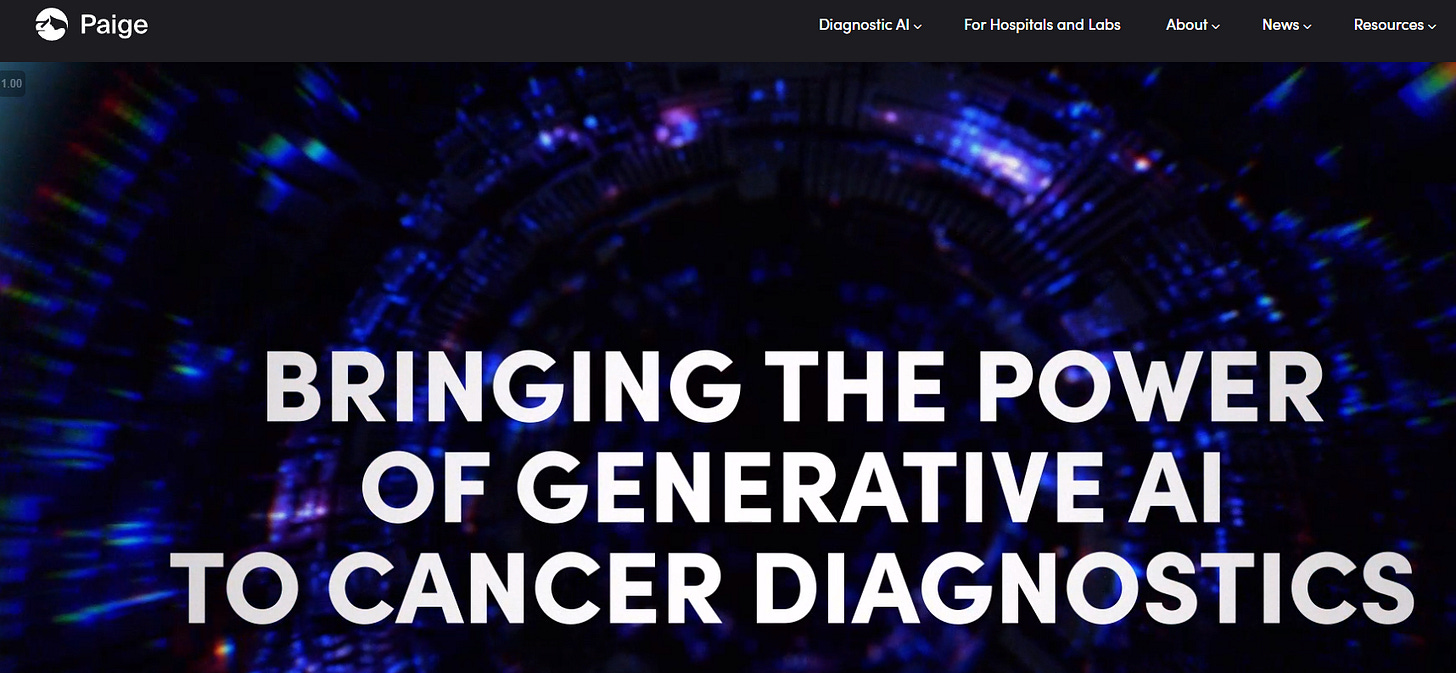Paige and Microsoft Join Forces to Build the World's Largest AI Model for Cancer Care
Paige and Microsoft Join Forces to Pioneer the World's Largest AI Model for Revolutionizing Cancer Care
In a monumental collaboration, Paige and Microsoft are teaming up to create the largest image-based AI model ever aimed at transforming cancer diagnosis and care. This groundbreaking model will help unlock new insights and capabilities far beyond what's possible today.
Paige, a leader in digital pathology and clinical AI, has already developed an AI model using over 1 billion images from half a million pathology slides spanning various cancer types. Now, by partnering with Microsoft, Paige plans to create a model orders of magnitude larger, powered by billions of parameters.
This massive increase in scale will enable the model to capture subtle complexities of cancer missed by human eyes and existing AI. The resulting leap in accuracy and new computational biomarkers promise to redefine what's achievable in cancer treatment.
Paige will feed up to 4 million digitized microscopy slides across diverse cancer types into this AI training colossus. To handle the unprecedented size, Paige utilizes Microsoft's advanced cloud infrastructure and supercomputing capabilities. This will accelerate development and eventually allow deploying the model globally to aid doctors and medical facilities.
The potential impact on cancer patients is staggering. Doctors will have AI assistance identifying malignant tissues earlier and with more precision. Pharmaceutical researchers can better evaluate treatments and design improved drug trials. Every patient benefits from more targeted, personalized care.
As Paige's CSO Thomas Fuchs stated, this AI will open "a window into the microscopic world with extraordinary fidelity" - even surpassing human perception. It takes the benefits of Paige's existing clinical AI applications, which already go beyond human capability today, to a whole new level.
Microsoft's massive compute resources combined with Paige's expertise in AI and huge datasets are a perfect match to create something previously unfathomable. Both companies are fully committed to pushing the boundaries of what AI can do in healthcare.
Razik Yousfi, Paige's SVP of Technology, emphasized that by joining forces, they "strongly believe we will significantly advance the state-of-the-art in cancer imaging." This model will help Paige realize their mission of using AI to improve cancer patients' lives on a global scale.
For Microsoft, the collaboration allows fulfilling their vision of using AI to truly advance healthcare. Microsoft's Desney Tan called this "a game changer in advancing healthcare to improve lives." It exemplifies their strategy of partnering the best domain experts like Paige with Microsoft's cloud and research leadership.
This project represents a historic milestone in applying AI to oncology and pathology. The sheer scale of computation aimed at modeling cancer's complexities is unprecedented. Both companies believe it will usher in a new generation of clinical applications that redefine what's possible for cancer care.
If successful, this AI could fundamentally alter how cancer is detected, diagnosed, treated, and researched. Lives will be saved through earlier and more personalized interventions. Years of fruitful research will be condensed to months. Suffering will be alleviated on an incredible scale.
Of course, challenges remain in effectively translating AI insights into physician workflows and positive patient outcomes. But this model lays the groundwork to make that a reality. Paige and Microsoft aren't just pioneering new AI capabilities - they're driving towards tangible improvements for those facing cancer's devastating impacts.
This collaboration exemplifies AI's immense potential for good when thoughtfully applied to areas like healthcare. It will surely inspire more partnerships between tech leaders and domain experts across industries to develop AI that enhances our world.
Both Paige and Microsoft should be applauded for boldly charting the future of AI in cancer care. Their commitment to advancing medicine with game-changing AI models is nothing short of heroic. We eagerly await seeing this remarkable project come to fruition and begin alleviating patients' hardships worldwide.





